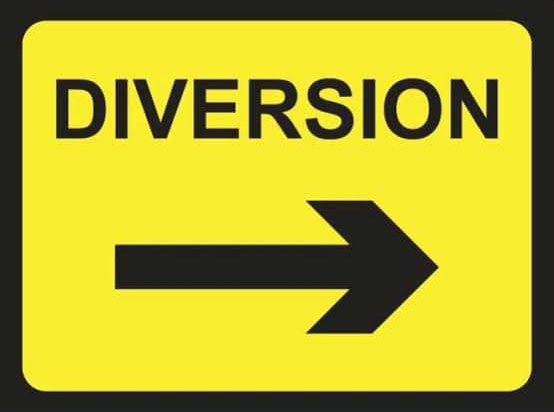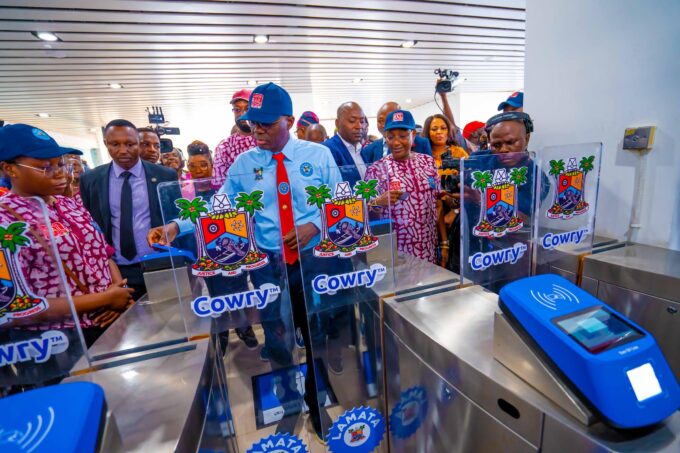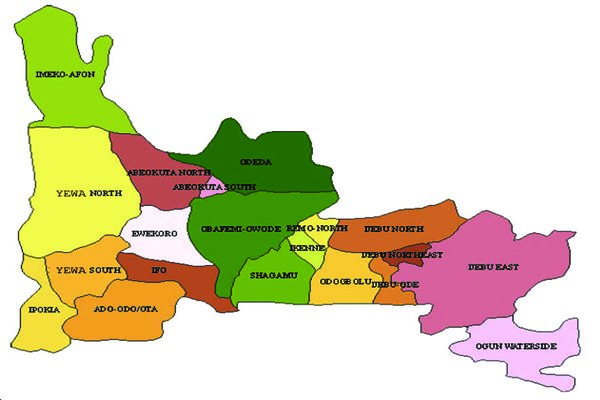The Nigeria Customs Service (NCS), Tincan Island Port Command, saic it generated N346 billion as revenue in 2019.
According to the Customs Area Controller, Comptroller Mba Musa, in a statement in Lagos on Tuesday.
The statement by the command’s Public Relations Officer, Mr Uche Ejesieme, said that the command was, however, limited by challenges that hindered its operations in terms of revenue and others.
He explained that part of the challenges experienced had to do with poor access road infrastructure, lack of government warehouse facilities and non-availability of operational equipment by the terminal operators, among others.
He added that not minding the challenges, the command also surpassed its revenue target for 2019 which was N342 billion.
“Tincan Island Port (TCIP) is one of the key ports in the country.
“TCIP custom command is charged and entrusted with the responsibility of revenue generation and accounting for same, suppression of smuggling, promotion/facilitation of trade and enforcement of the physical monetary policies of the Federal Government.
“It is in the realisation of the foregoing that deliberate and concerted efforts were formulated for the realisation of this onerous task.
“The command during the period under review, year 2019, generated a total of N346 billion and remitted same into the federation account.
“The command was given a target of N342 billion. Accordingly, the command met its revenue target and exceeded it by a total sum of N4.2 billion, a performance of 101.21 per cent.
“A comparative analysis against the preceding year 2018 shows an improvement in the collection by N2.97 billion where N343 billion was collected.
“Also comparative analysis of the compliance level indicated and improvement by 4 per cent from the compliance in 2018,” he said.
Musa said that this performance came on the heels of implementation on series of transformational agenda and Standard Operating Procedures (SOP) developed to facilitate trade without compromising the extant provisions.
He pointed out that the command was able to create templates and blueprints that guided its actions in line with the mission and vision of the Comptroller General of Customs, Col. Hameed Ali (rtd) and his management.
He noted that as regards anti-smuggling, the command during the year under review, strengthened its anti-smuggling operations for optimal performance, consequently, the command effected a total seizure of 16×40ft, 37×20ft (53containers) and three non-containerised cargo.
He listed the seizures to include rice, used tyres, pharmaceutical, vegetable oil, military accoutrements with a total Duty Paid Value of N5.9 billion.
He added that when compared with 2018 seizures, it indicated a recorded improvement from the seizures of 14×40ft, 2×20ft(16 containers) and five non-containised others.
He said that the non-containised ranged from bales of second hand clothing, furniture, children toys, used bags and shoes, expired medicament, used tyres, used fridges, with a total DPV of N2.9 billion from year 2018.
The comptroller said that for export, the command embarked on sensitisation of stakeholders and would be exporters on the need to take advantage of the potential inherent in export and this yielded an increase in export in 2019.
He pointed that the command exported items with a total tonnage of 269,819.5 tons with a total Free On Board (FOB) value of N130 billion in 2019 as against 254,762.77 tons with a total FOB value of N145 billion exported in 2018.
He said that the command had articulated various trade facilitation initiatives in their SOP which included the use of badges for movement of cargoes.
“A re-invigorated Dispute Resolution Committee was constitutes to deal expeditiously with disputes arising from valuation, classification, PAAR, rules of origin and others.
“Importers or their agents are urged to take advantage of the availability of bond facilities to take delivery of their consignment where disputes persist.
“There is also the ‘Time Release Studies’, a means of assessing the performance of officers in the 48-hours Cargo Clearance Trade Value Chain, with the aim of identifying area of delay by personnel.
“Also is the re-engineered help desk where inquiries are channeled, and also a ‘One Stop Shop’, a facility where alerts/intervention emanating from Q/A, valuation, compliance will be synchronised with a view to resolving issues,” he said.
He added that as part of measures to increase efficiency and capacity of operations in the service, the command developed training curriculum in data analysis, NICIS 11 software, skill gap and profiling training and others.
Musa also commended all stakeholders that ensured that they complied with the regulations thereby making their work easy.
He urged those that did not comply to be patriotic in their dealings.
- Home
- Business
- News
- Tourism / Travels
- Entertainment
- Regulators
- More
- Businesstoday Conference/Awards
- Business Today Magazine
Latest News
Please Subscribe
subribe to get the latest news delivered to you free
Transport
 BusinessTodayNGJanuary 9, 20203 Mins read56
BusinessTodayNGJanuary 9, 20203 Mins read56
Customs Generate N346bn From Tincan Island Port

Nigeria-Customs-Service in Apapa. file copy
Share
Related Articles
LASG Announces Traffic Diversion For Installation Of Truck Barriers
The Lagos State Government on Thursday announced a traffic diversion at Ojuelegba...
ByBusinessTodayNGOctober 24, 2024Lagos Red Line Begins Commercial Operations
At exactly 5:20pm on Tuesday, Lagos Red Line rail departed at Platform...
ByBusinessTodayNGOctober 15, 2024Ogun Warns NURTW Against Breakdown Of Law And Order
The Ogun State Government at the weekend warned members of the National...
ByBusinessTodayNGOctober 14, 2024Transport Union Leaders Vow To Stop Arbitrary Fare Hikes In Ogun
Transport union leaders in Ogun State have promised to collaborate with the...
ByBusinessTodayNGSeptember 10, 2024












